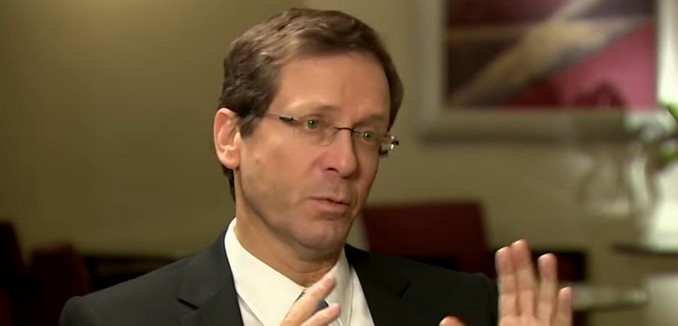Isaac Herzog and Tzipi Livni, leaders of Israel’s main opposition party, the Zionist Union, released a position paper calling the understandings reached earlier this month with Iran over its nuclear program “problematic,” and said that they present “real potential dangers for the long term,” The Jerusalem Post reported Sunday. In addition, the party called on the United States to allow Israel the freedom to strike Iran, if Iran is found to be in violation of a future deal.
Herzog and Livni, in a statement released to the press, presented their “alternative plan of action” on how Israel should deal with the P5+1 group of world powers’ framework nuclear deal reached with Iran earlier this month. …
The party said that some of the parameters presented by the West and the Iranians in the framework are “problematic,” and hold within them “real potential dangers for the long term” that must be fixed in the comprehensive agreement to be signed by June 30.
The Zionist Union said the final agreement must hold that removal of sanctions will come only gradually and on the condition that Iran proves over time that it is rolling back its nuclear program, allowing intrusive inspection of its facilities, eliminating all of its stockpile of enriched uranium and not using its old centrifuges to enrich uranium or activating new centrifuges.
The paper declared the world must make clear that “if Iran will break out to the bomb, all actions, including new sanctions and the military option, will continue to be on the table at all times.” Furthermore, it called on the United States to “legitimize any action Israel will be forced to take in order to preserve its security in the situation that is created.”
The Zionist Union also called on the United States not to allow the nuclear negotiations with Iran to hamper the fight against Iran-backed terror.
The paper released by the Zionist Union reflects a consensus across Israel’s political spectrum that Iran must not be allowed to develop a nuclear weapon, and that the emerging deal will not sufficiently deter Iran’s efforts. Prior to last month’s election, Herzog, in op-ed published in The New York Times, asserted that diplomatic efforts aimed at preventing a nuclear-armed Iran also must “deny Iran a pass on its destabilizing regional policies and support of terror, and be accompanied by an international demand that Iran abandon its threat to the existence of Israel.” Gen. Amos Yadlin, who would have served as defense minister in a Zionist Union-led government, said in February that a military attack against Iran’s nuclear program remained “doable,” and that the American shift towards Iran was a mistake. Author David Grossman, a prominent critic of Prime Minister Benjamin Netanyahu, acknowledged last month that “Netanyahu is right when he says that according to the emerging deal there is nothing to prevent the Iranians from developing a nuclear bomb once the deal expires in another 10 years, and on this matter there is no difference in Israel between Left and Right.”
Following the announcement of the parameters of a potential deal last week, politicians across Israel’s political spectrum questioned the effectiveness of the emerging agreement.
[Photo: CNN / YouTube ]




